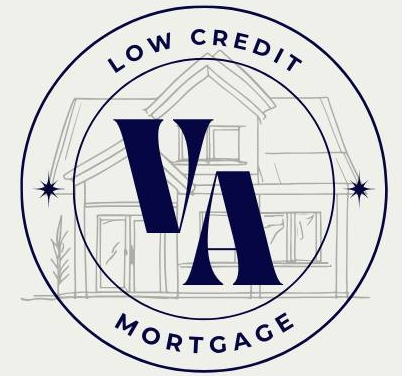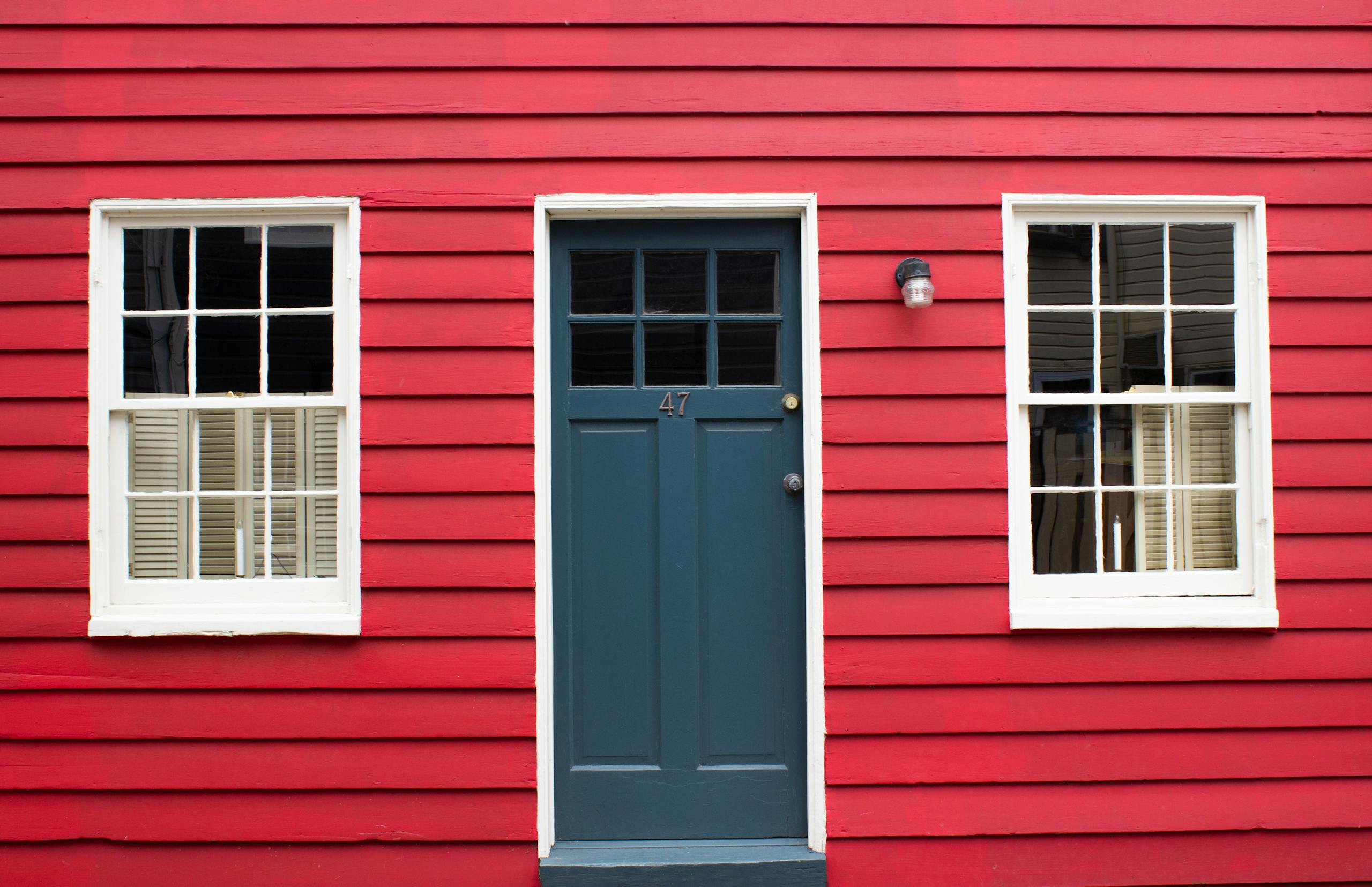How to Get a VA Loan with a Low Credit Score in Maryland in 2025: A Complete Guide
If you’re a veteran or active-duty service member considering purchasing a home in Maryland in 2025, a VA loan could be a great option. One of the most appealing features of VA loans is that they offer benefits such as no down payment and no private mortgage insurance (PMI). These loans, backed by the U.S. Department of Veterans Affairs, are designed to help service members and veterans become homeowners. However, one of the most common challenges borrowers face is dealing with a low credit score.
While the VA itself does not set a minimum credit score requirement for VA loans, most lenders do. If you’re facing challenges with your credit score, this guide will explain how you can still secure a VA loan in Maryland in 2025. From understanding the eligibility requirements to knowing your financing options, we’ll cover everything you need to know.
What is a VA Loan?
A VA loan is a mortgage loan provided by private lenders but backed by the U.S. Department of Veterans Affairs. The loan was designed to help veterans, active-duty military members, and eligible members of the National Guard and Reserves obtain financing for a home. The primary advantages of VA loans include:
•No down payment: In most cases, VA loans require no down payment, which can significantly reduce your upfront costs.
•No PMI: Unlike conventional loans, VA loans do not require private mortgage insurance (PMI), which can save you money over time.
•Competitive interest rates: VA loans typically come with lower interest rates compared to conventional mortgages.
•Lenient credit requirements: While most loans require a minimum credit score, VA loans tend to be more flexible with credit scores, allowing borrowers with less-than-perfect credit to qualify.
These benefits make VA loans an attractive option, especially for first-time homebuyers or veterans who may struggle to save for a down payment.
Maryland’s Housing Market in 2025
Before diving into the specifics of securing a VA loan with a low credit score in Maryland, it’s important to understand the state’s housing market. Maryland is known for its diverse housing options, from bustling urban areas like Baltimore to suburban communities and rural areas. The state’s economy is expected to continue growing in 2025, driven by industries such as technology, healthcare, and government contracting.
•Baltimore: Baltimore offers a wide range of housing options, including historic rowhouses, luxury condos, and newer developments. The city is an attractive option for veterans looking for investment opportunities.
•Suburbs of Washington, D.C.: The Washington metropolitan area, including Montgomery County and Prince George’s County, has seen substantial growth. High demand for housing and rising property values make these areas desirable for homeowners and investors.
•Rural Areas: Areas such as Western Maryland and the Eastern Shore offer more affordable options and quieter living conditions, attracting families and retirees.
In 2025, housing prices in Maryland are expected to rise steadily, and the demand for both single-family homes and multi-family properties is projected to remain strong. Given the varied nature of Maryland’s housing market, there are plenty of opportunities for buyers to find the right property, regardless of credit score.
Can You Get a VA Loan with a Low Credit Score in Maryland in 2025?
The short answer is yes, it’s possible to obtain a VA loan with a low credit score in Maryland in 2025. However, there are some caveats you should be aware of. While the VA does not impose a minimum credit score requirement, most private lenders will have their own standards. Typically, most VA-approved lenders in Maryland will look for a minimum credit score of 620, but some may accept lower scores.
1. VA Loan Guidelines for Credit Scores
Although the VA itself does not set a minimum credit score, it does require that the borrower has a satisfactory credit history. Lenders often look at your credit score to gauge your ability to repay the loan. In Maryland, if your credit score is below 620, you may face higher interest rates or need to provide more documentation to prove your ability to repay the loan.
It’s essential to note that the VA’s guidelines are flexible, and lenders are often willing to make exceptions based on your unique financial circumstances, such as your income, job stability, and residual income (how much money you have left after paying essential expenses).
2. Why Low Credit Scores Can Be an Obstacle
While VA loans are more forgiving of low credit scores compared to conventional loans, a low score still presents challenges. Here are a few reasons why lenders may hesitate to approve a VA loan for applicants with low credit scores:
•Risk of Default: Lenders view low credit scores as an indication of higher financial risk, as they suggest a history of missed payments or excessive debt.
•Increased Interest Rates: If you’re approved for a VA loan with a low credit score, your lender may charge you a higher interest rate to offset the risk.
•Down Payment Requirements: Some lenders may require a larger down payment (though it’s still lower than conventional loan requirements) if your credit score is low.
That said, securing a VA loan with a low credit score is certainly achievable. Many lenders are willing to work with borrowers who show a willingness to improve their financial situation.
Steps to Getting a VA Loan with a Low Credit Score in Maryland
Here’s a step-by-step guide on how to improve your chances of getting a VA loan with a low credit score in Maryland:
Step 1: Check Your Credit Report and Score
The first step is to understand your current financial standing. You can get a free copy of your credit report through the Annual Credit Report website. Make sure to review the report carefully for any errors or discrepancies. If you spot mistakes, dispute them with the credit bureaus to improve your score.
A score below 620 may be considered low by some lenders, but there are still options available.
Step 2: Understand the Lender’s Minimum Credit Score Requirements
While the VA’s guidelines are flexible, each lender in Maryland will have its own credit score requirements. Contact several VA-approved lenders to inquire about their minimum credit score thresholds. Some lenders may be more lenient with low scores if you have a strong work history, low debt, or significant savings.
Step 3: Consider Compensating Factors
If your credit score is low, you can improve your chances of getting approved by demonstrating other compensating factors that show you’re financially stable. These factors can include:
•Stable Income: A reliable and consistent income can prove to lenders that you can handle mortgage payments, even if your credit score is low.
•Low Debt-to-Income Ratio: A low DTI ratio shows that you’re not over-leveraged and can afford monthly mortgage payments.
•High Residual Income: The VA considers your residual income, which is the money you have left after paying for your debts, housing costs, and living expenses. A higher residual income can offset a low credit score.
By showcasing these compensating factors, you’ll demonstrate to lenders that you are a reliable borrower, even with a low credit score.
Step 4: Secure Your Certificate of Eligibility (COE)
To apply for a VA loan in Maryland, you must obtain a Certificate of Eligibility (COE) from the U.S. Department of Veterans Affairs. This certificate verifies that you meet the military service requirements for a VA loan. You can request a COE through your lender or directly from the VA’s eBenefits portal.
Step 5: Find a VA-Approved Lender in Maryland
Once you have your COE, the next step is to find a VA-approved lender in Maryland. While there are many banks, credit unions, and mortgage lenders in the state, it’s important to choose one that has experience working with borrowers who have low credit scores.
Step 6: Consider a Larger Down Payment
Although VA loans do not require a down payment in most cases, some lenders may request a larger down payment if your credit score is low. Offering a higher down payment reduces the lender’s risk, which may increase your chances of approval.
While a larger down payment might not be necessary, it can help if you have the financial means to do so. A 5-10% down payment can sometimes make the difference between getting approved or not.
Step 7: Review the Loan Terms Carefully
If you’re approved for a VA loan, make sure to carefully review the loan terms, including the interest rate, loan fees, and monthly payments. If your credit score is low, you may face higher interest rates, which will increase your monthly mortgage payment.
It’s essential to work with your lender to ensure that the loan terms are manageable and within your budget.
Step 8: Close the Loan
Once your loan is approved, you will go through the closing process. This includes signing all required documents, paying closing costs, and officially taking ownership of the property.
Step 9: Consider Refinancing Later
If you’re approved for a VA loan with a low credit score and a higher interest rate, don’t worry. Once your credit improves, you may be eligible to refinance your loan to secure a lower rate and better terms.
Final Thoughts
Securing a VA loan with a low credit score in Maryland in 2025 is certainly possible, but it requires careful planning and understanding of your options. By reviewing your credit report, understanding lender requirements, and demonstrating financial stability through compensating factors, you can increase your chances of approval.
If you’re ready to take the next step toward homeownership, start by contacting a VA-approved lender in Maryland to discuss your specific situation. Even with a low credit score, the benefits of a VA loan—such as no down payment and no PMI—make it an excellent choice for eligible veterans and service members looking to purchase a home.
For more information on VA loans and the Maryland housing market, visit trusted resources like VA Home Loan and Maryland Department of Housing and Community Development.

